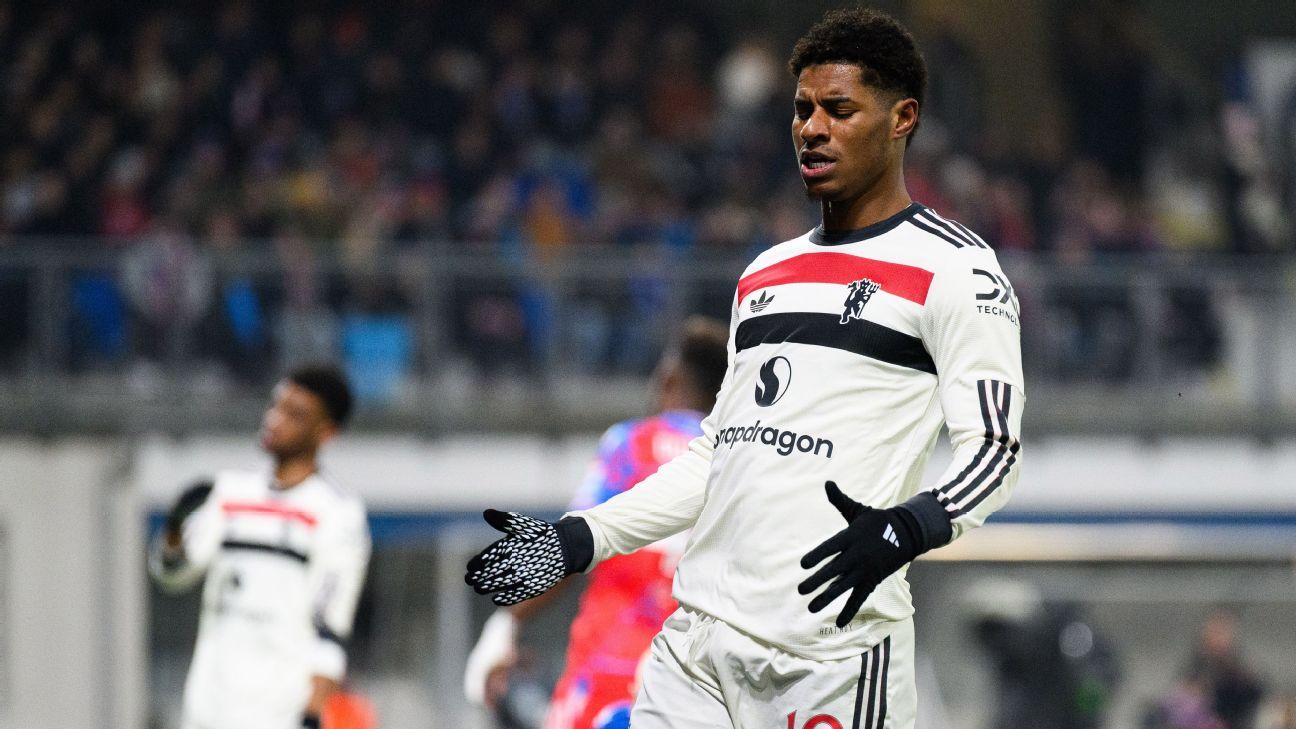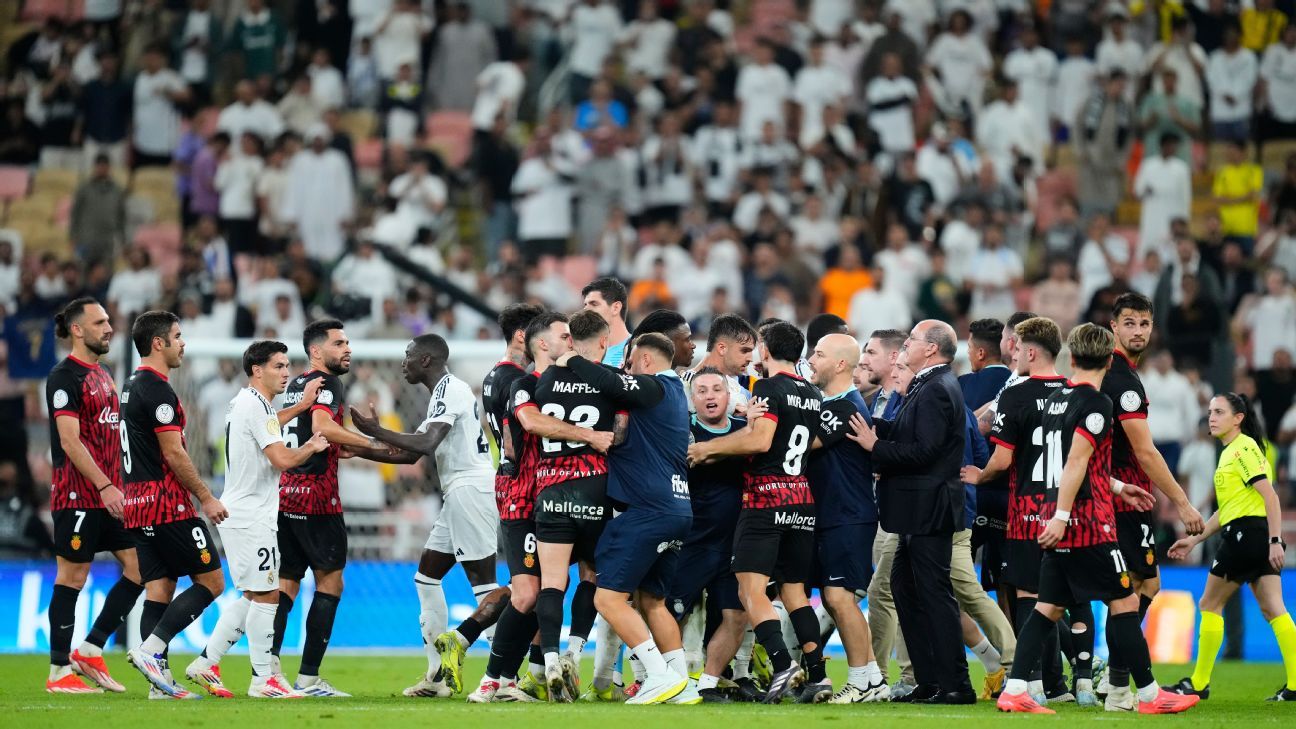
Mark Ogden, Senior Writer, ESPN FCJun 20, 2024, 09:00 AM
WIESBADEN, Germany -- Ukraine's players experienced a strange kind of normal after being beaten 3-0 by Romania in their Euro 2024 Group E opening game on Monday. They turned on their phones, checked their social media channels and were deluged by criticism, condemnation and, in the words of midfielder Volodymyr Brazhko, "hate."
"For a few hours after the match, I didn't take my phone because I expected what I could see there," Brazhko told reporters at Ukraine's Wiesbaden training camp. "I expected that hate, but we deserved it. We played bad, but it is the first situation in my life when I had to live through that."
Several Ukraine players apologised on Instagram and X for the performance and result against Romania, but some, including Ruslan Malinovskyi, chose not to. "Nobody needs to apologise on social media," the Genoa midfielder said. "It's good to play again so soon against Slovakia on Friday and then make our apologies on the pitch."
Ukraine's presence at Euro 2024 is an achievement in and of itself, given Russia's full-scale invasion in February 2022. With intense fighting across the entire East of the country, football has tried to continue with Ukrainian Premier League (UPL) games played behind closed doors and often halted by air raid sirens. But despite the obvious challenges that Ukrainians face every day, their footballers are still expected to live up to, and even exceed, expectations on the pitch, just like the other 23 competing nations at Euro 2024.
So while they are flying the Ukraine flag in a major international tournament and also trying to ensure the war back home remains at the forefront of minds across Europe and beyond, Serhiy Rebrov's players must also deal with an issue that blights the lives of footballers everywhere: social media abuse.
In the eyes of their own supporters, they are flag-waving heroes one minute and not fit to wear the shirt the next. But that warped reality only serves to highlight the burden that Ukraine's players must shoulder in Germany: They are still expected to be normal footballers when few things in their lives right now merit that description.
"We have to fight a lot," Malinovskyi, 31, tells ESPN. "We understand that we have lots of experienced players who can help the youngsters make the conclusions and to make results better. But we know we have critics. We have to accept that right now."
At Ukraine's Euro 2024 base in Wiesbaden, the German city that houses the huge U.S. Army Garrison a short drive down Autobahn 66 from Frankfurt, there are individual posters of Rebrov and his players, each with a message to the soldiers fighting against Russia. Chelsea forward Mykhailo Mudryk's one says: "You are always in our thoughts. You are the pride and honor of Ukraine. Glory to Ukraine! Glory to the heroes!" The message from Everton defender Vitaliy Mykolenko is: "We strive to be as unfailing as you are! Glory to Ukraine! Glory to the heroes!"
Next to the posters are small vases of flowers -- carnations, gypsophila, chrysanthemums and solidago -- in the yellow and blue colours of Ukraine. "They are from the local people here in Wiesbaden," Ukraine's media officer Tatiana says. "They are very nice."
On the pitch, the players believe their job is to boost the morale of troops back home by performing -- and hopefully winning -- in Germany. But they fell short this time.
"I have friends which I played football with, but they don't go to a higher level and now they protect the country," Malinovskyi says. "But they always text me that we give a little bit of shine when we get a good result, when they see the game. It gives positive emotion, you can switch off in your head, and this part is very important also for them. For me that responsibility is like the boost which gives you the energy to make it good. Maybe for the younger players it's more pressure."
Eight of the Ukraine team are aged 23 or under, while 14 of Rebrov's 26-man group still play for clubs in the UPL, so there is both a young and domestic feel to the squad. And both factors have a direct impact on the mindset of the players in this tournament, according to Malinovskyi.
"Some of those guys, they are just 21, 22, and they still play in Ukraine," he says. "When the drones or the bombs arrive, they know what it is like. And I can say that is not easy. I can say also that the situation makes them stronger and also I see that the guys from these [conflict] zones, they have more responsibility. They are more human; they seem older. Because when you speak with them, they don't seem like 21; they seem much more mature.
"With the war we know that every second person knows somebody involved in [the] conflict and it's not easy. But I repeat what we need to: that it's in our power on the pitch to show that the guys who are there [fighting]. There are a lot of our fans there, we want to show them that we are like this also, that we also fight for them. So it's good that we have these two games against Slovakia and Belgium to show this."
Malinovskyi's belief that the younger players in the squad are feeling the pressure, and the difficulties of representing Ukraine at this tournament, is borne out by Brazhko, the 22-year-old Dynamo Kyiv midfielder who only made his international debut during the Euro 2024 qualifying playoff clash against Bosnia and Herzegovina in March.
Brazhko's hometown is Zaporizhzhia, the southeastern city that houses the largest nuclear power plant in Europe and has been under Russian attack throughout the two years of the war. With his family still based in the city, Brazhko has every reason to be distracted.
"Please know that we're talking not just about me," Brazhko tells ESPN. "Yes, I'm from Zaporizhzhia, but lots of players in the Ukraine national team are from regions that are close to the front line. Of course, we feel this pressure every single day because Ukrainian cities are under the attack every single day. And I keep in touch with my parents, with my friends in Zaporizhzhia and in Ukraine. They are still there and I worry about them a lot.
"But everything that I can do right now is just to play for the national team and to make them happy with my play, with my game and with the results. Of course it was a disappointing result for us against Romania, but we'll make everything possible to improve our results and to improve our game and to make the people in Ukraine smile and to make them happy. And most of all, for the defenders and fighters on the front line to be proud of us and to be happy."
Next up is the game against Slovakia in Dusseldorf on Friday. A defeat would leave Ukraine's qualification hopes for the knockout stages in a precarious position going into the final game against Belgium next Wednesday. But while the football matters, for Malinovskyi, it is only part of a bigger picture for Ukraine, something brought home to him by a birthday message he delivered earlier this week.
"There is a soldier who told us: 'Today's my birthday,'" he says. "So I make a video call, I make him happy. In football, you can only have three results: You can win, lose or draw. But we have a big responsibility to give everything on the pitch for our country so that our people can be proud of us."
 (1).png)
 6 months ago
40
6 months ago
40















